7 Lessons Game Designers Can Learn From Telltale’s The Walking Dead
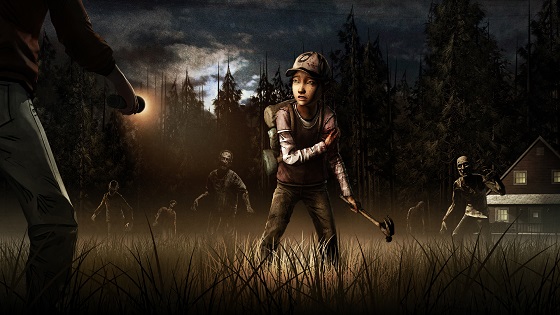 |
The second episode of Telltale Games’ The Walking Dead: Season Two was released earlier this month to the same critical acclaim that has become the norm for this post-apocalyptic series since the first episode of its premiere “season” came out nearly two years ago. The Walking Dead video game may not be as popular as its sister television series or even the comic it’s based on, but in terms of character development alone it’s of higher quality than both of them combined. The episodic series draws heavily on the adventure game genre, though it places a greater emphasis on character interaction and branching conversation than puzzle-solving. More importantly, it’s one of the most engaging, immersive and downright effective entries in the entire medium of video gaming. While it’s not a Triple A franchise in the same vein as Call of Duty, BioShock or Grand Theft Auto, The Walking Dead is hands down more effective at storytelling than all three.
Here are a few leaves other developers can take out of Telltale’s book…
7. Cut Down on the Action
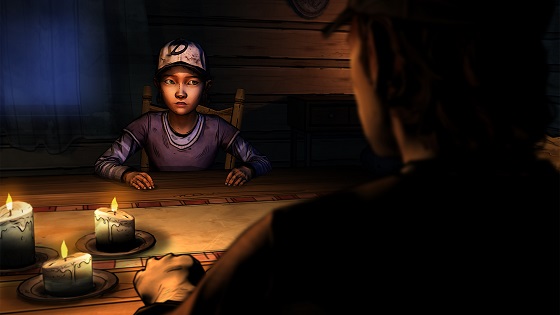 |
| Telltale Games |
Admittedly, it would be hard or even impossible to apply this to Call of Duty, as that franchise is all about running and gunning, but BioShock Infinite, for all of its interesting characters and hooks and gripping story and general excellence, was plagued by an overabundance of action. Soaring around on the skylines and giving your enemies a faceful of crows can be – and certainly was – entertaining, but by the final act it began to feel routine and even boring. While all of these combat sequences blended together at some point, the game’s comparatively relaxed moments of exploration – such as Booker’s discovery of Columbia, or Elizabeth wandering amongst the beachgoers at Battleship Bay, or marching with the rank and file in Finkton – stand out in their own ways.
Though The Walking Dead‘s environments may not be as vast or populated – at least not by the living – Telltale affords players ample time to wander about, discover every nook and cranny and just plain take in the world without forcing them to gird themselves for yet another five-minute battle. Moreover, the moments in which the player has to take action are sparce enough to feel significant and limited mainly to quick time events which, while begrudged by many for simply being quick time events, are genuinely adrenaline-pumping. Most of all, they feel natural and part of the whole experience, whereas repetitive action sequences in other games kind of expose their own artificial nature after a while. All video games are assembled from the same tropes and mechanical beats, but a stellar game like The Walking Dead makes them seem organic and unnoticeable. The only real downside is hitting the wrong button at the wrong time during these QTEs, leading to the brutal, drawn out death of your character and your own torrent of profanity that’s sure to disturb the neighbours.
6. Don’t Be Afraid to Play Around With Genre
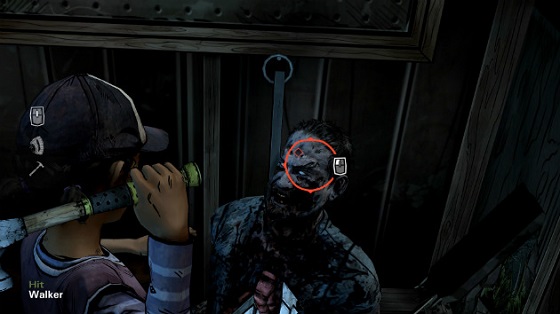 |
| Telltale Games |
Similarly, major game designers should attempt to branch out from control and gameplay styles that have become commonplace and, to some, repetitive. Ignoring Nintendo’s output, most of the best selling games currently on the market fall under the banner of first- or third-person shooters. It’s entirely understandable why designers would prefer to stick with these formats. They sell well, to begin with, and most developers and publishers are apprehensive about the decrease in sales that might follow if they attempted something less mainstream. And it’s comfortable to stick with what you know. Ken Levine, of now defunct BioShock series developer Irrational Games, has said he designed BioShock Infinite as a first-person shooter because that’s just the genre he was used to.
But other ways can work. The Walking Dead has proved it’s totally possible to draw on adventure games without descending into the click-on-and-combine-everything marathon that the genre is notorious for. It prioritizes investigation and interaction over cutting through swaths of enemies and while it might take a few minutes getting used to by the end of the first episode it’s as intuitive – perhaps more so – than more conventional gameplay styles. To boot, only one sequence in the entire game will leave the player grumbling as they attempt, through trial and error, to kick start a train.
5. Don’t Make Transparent “Morality” Systems
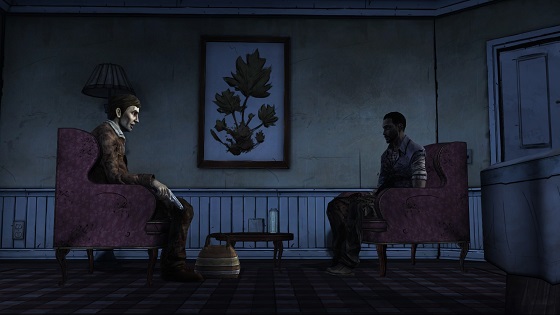 |
| Telltale Games |
Light Side/Dark Side. Paragon/Renegade. Rescue/Harvest. These terms sound pretty familiar to those who play games that include a choice or “morality” aspect. As storytelling in video games has progressed, more and more designers have allowed players to choose not only the direction in which the story advances but how these choices affect their protagonist’s relationships with other characters. Two problems arise from these dichotomies, however. The first is that, as in real life, ethical choices are not labeled nearly as clearly as they are in video games. It would be awesome to see a flashing red “Renegade” icon in the lower right corner of one’s vision for when it were applicable, but that’s obviously not the case. The second is that you end up treating these systems as a little game in and of themselves, min-maxing your “good” or “evil” stats without really considering if the choice you made is something you would actually do in that situation.
Like these other games, The Walking Dead is rife with choice: do you take these needed supplies from a recently abandoned vehicle, or do you leave them for the people who actually gathered them? Do you save the fit, capable adult or the imperiled child? Do you protect the otherwise decent guy who’s inadvertently endangered your group time and time again, or do you leave him to die? The Walking Dead stands out, however, by not saying whether your choices make you a categorically “good” or “bad” person. On occasion you’ll see on-screen hints noting how your words or actions have affected your relationship with another character but that’s about it. And there’s none of that aforementioned min-maxing. The end of each episode shows you how many other players made the same choices you did, but that’s the only statistic, and it’s nothing you can use to gauge your own personal level of ethics. Like the overlooked shooter Spec Ops: The Line, The Walking Dead makes every choice implicit, and as in real life you’ll spend a long time wondering if you made the right decision after all. But at least you know that jackass won’t be letting any more zombies in.
4. Invest in Good Writers
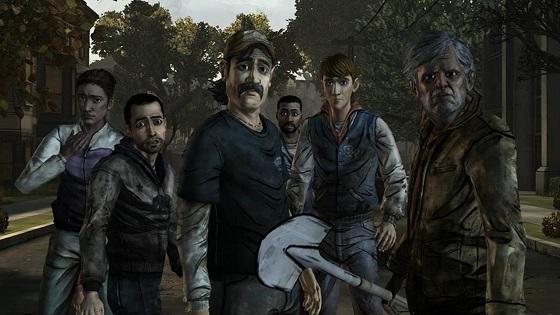 |
| Telltale Games |
Telltale bills each episode’s writer as a movie or television show might. Scribes like Sean Vanaman and Gary Whitta have become synonymous with the series’ success, and for good reason: they’ve gone out of their way to make each character as nuanced as possible and each plot development essential for maintaining player attention. Understandably, writing for The Walking Dead isn’t the same as writing for something like Grand Theft Auto or Skyrim, where the developer requires multiple writers in order to handle a movie’s worth of dialogue, or flavor text for ancient weaponry, or patter on radio stations – in the case of GTAV, the finished script was thicker than some college textbooks. But while GTAV‘s trio of protagonists has been praised to varying degrees, the same cannot be said for the game’s multitude of supporting characters. Its portrayal of women in particular has been criticized as two dimensional at best, misogynist at worst. And it’s probably nothing intentional on the part of Rockstar, but an unfortunate consequence of having too much to cover all at once: some things get half-assed.
Meanwhile, the writers of The Walking Dead have gone out of their way to flesh out every character you encounter. With perhaps one, maybe two exceptions (oh Mark, we barely knew ye) the game’s cast is one of the most multifacted and complex in the medium, from tightly wound but put-upon group leader Lilly, to protective and self-proclaimed redneck family man Kenny, to secretive solo survivor Molly. The game’s antagonist, who shall remain nameless for the sake of those who haven’t played it, might be the single most interesting villain in the entire gaming medium. And this is to say nothing of player characters Lee and Clementine. The Walking Dead might not have as large a writing staff as Grand Theft Auto V, but it doesn’t suffer from inconsistent quality or being stretched too thin.
That being said, it suffers from a significant lack of Lamar. The point might go to Rockstar in this case.
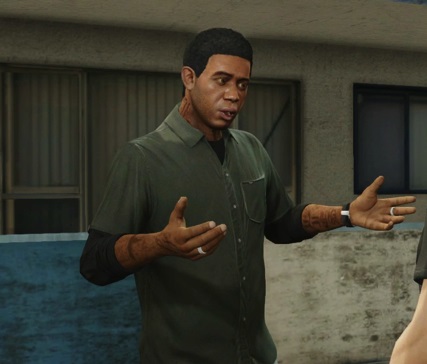 |
| Rockstar Games |
| Lamar Davis: Our Favorite Jackass Since September 2013 |
3. Don’t Shock for the Sake of Being Shocking
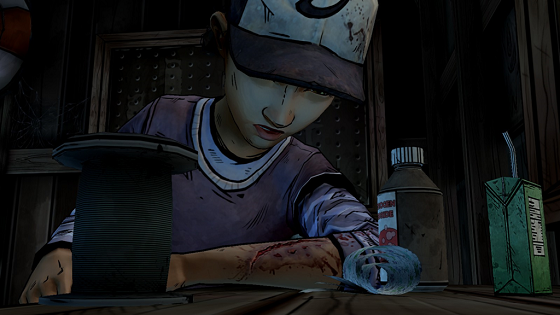 |
| Telltale Games |
Call of Duty: Modern Warfare 2 allowed you to shoot up an airport terminal. Grand Theft Auto V had you torture an innocent man. Saints Row the Third let you run around with a floppy dick sword.
 |
| Volition, Inc. |
| It’s called the Penetrator! |
…okay, perhaps we shouldn’t take that last example too seriously. But game developers have been pushing boundaries, especially these last few years, and while it was once innovative and “grown up,” it’s getting to the point where the audience is wondering what horrible atrocity the guys at Rockstar or Infinity Ward will get up to depicting next. Not only does that take the “shocking” out of, well, “shocking” somewhat, but it’s not really advancing anything or proving a point; it’s titillation. On a non-video gaming note, Robert Kirkman and Charlie Adlard’s original Walking Dead comic is guilty of this very faux-transgressiveness, finding new ways to utterly destroy characters fans had come to love just for the sake of further dashing their hopes. That’s not advanced or subversive storytelling. That’s mild sadism.
Telltale’s The Walking Dead is chock full of shocking moments. In the course of the first season, you’re able to hack off someone’s leg, or kill a tormentor in the most gruesome way possible, or even shoot a child(!). But, you ask, how is this an improvement over the gratuitously shocking stuff in those other games (and comic)? For starters, these instances are few and far between, and when they do occur they don’t come out of left field but have been built up to typically over the course of an episode. In short, they’re earned.
As well, it really does feel that the writers are making a point or at least trying to encourage discussion about the choices people have to make in catastrophic situations, like deciding whether to save or abandon the previously mentioned fellow survivor who repeatedly endangers the group. In short, the game is shocking in the same ways as Apocalypse Now, not like Uwe Boll’s Postal.
2. Go Outside Your Comfort Zone
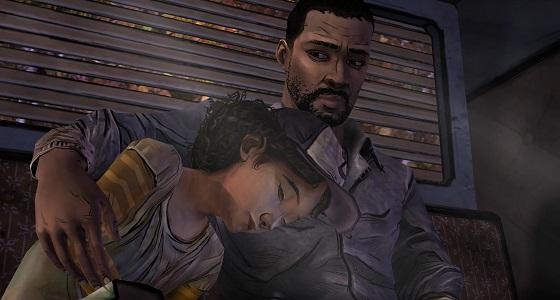 |
| Telltale Games |
A few days ago at this year’s Game Developer’s Conference, designer Manveer Heir of BioWare Montreal spoke about how the gaming industry at large needs to improve how it portrays minorities of all creeds, colors and sexual preferences. As it stands, the vast majority of playable protagonists in Western video games are straight, white males. While some people within the industry have argued that games starring female characters or visible minorities simply aren’t that financially successful, Heir countered that these titles suffer from a lack of marketing and a smaller development budget, thus “skew[ing]the numbers in the negative.”
In this sense, the designers at Telltale behind The Walking Dead have been incredibly progressive. Standing out from their paler contemporaries, both player characters in the series so far have been black, and one is a woman – an extremely capable preteen girl, no less. Later episodes in the first season feature Christa and Omid, an interracial (black and Persian-American) couple who are two of the game’s most memorable and best-written characters. This is to say nothing of the wide variety of body types, ages and ethnicities seen throughout the supporting cast. So although larger game companies like Capcom might go to absurd lengths rationalizing why Deep Down won’t include any playable female characters, Telltale has been quietly breaking down barriers this whole time. Now they just need to get some gay zombies up in that mix… though that understandably wouldn’t go over too well.
1. Put Your Players Through Hell
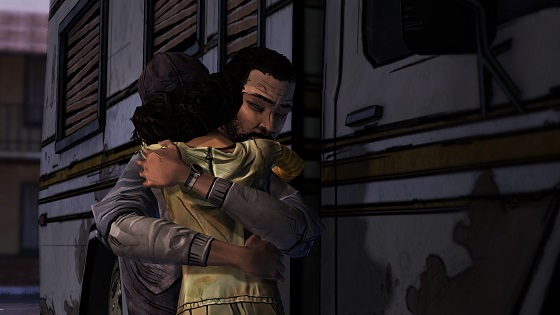 |
| Telltale Games |
This isn’t about difficulty. Dark Souls is difficult, Halo on Legendary is difficult. In terms of playability, unless you have the worst reflexes ever, it’s almost impossible to fail at The Walking Dead. But what it does better than pretty much any other game is put its player through an emotional wringer. Given the quality of Telltale’s writing and the immersiveness of The Walking Dead‘s design, it’s almost impossible not to form some attachment to this game’s cast. And when Telltale gets you in its grip, they can and will mess with you.
In Kurt Vonnegut’s eight rules for writing a short story, number six was “Be a sadist. No matter how sweet and innocent your leading characters, make awful things happen to them – in order that the reader may see what they are made of.” Poorer writers like Robert Kirkman have taken this the wrong way and used it as an excuse to mutilate his characters to no end. But Vonnegut’s rule was about using hardships as a means of forging respect for a character. Sometimes this can catch even writers by surprise: Stephen King wrote that he originally intended to kill off all of the main characters in ‘Salem’s Lot, but by the time he reached the climax he realized that some of them were tougher than he originally thought them to be. In The Walking Dead, Lee and Clementine go through physical, emotional and moral Hell, and due to the level of empathy Telltale is able to evoke, the player feels every bump, every bruise, every tragedy.
Forging an emotional connection with the player is difficult, even in a medium as interactive as video gaming. Weird as it sounds, sometimes the mechanical act of playing the game can get in the way of empathizing with the figures on screen. But with The Walking Dead, Telltale has exceeded at creating a truly immersive experience and they deserve all the acclaim and accolades it’s gotten them. Now all they need to do is apply their increased budget to a comedic prequel about Christa and Omid’s cross-country roadtrip. Call it pathos-free fan service.
Previously by Daniel Link
